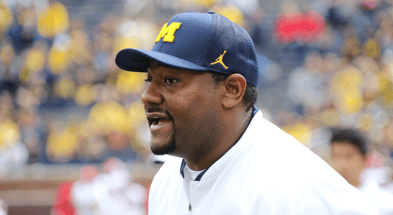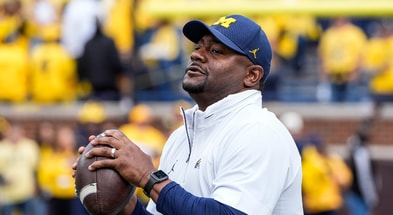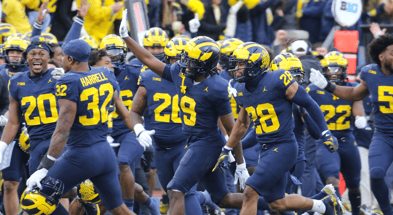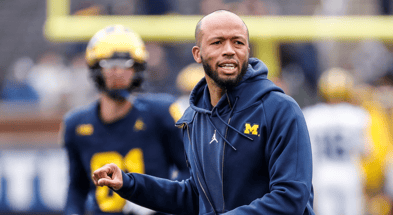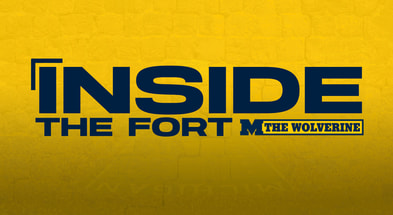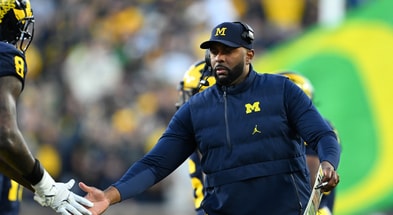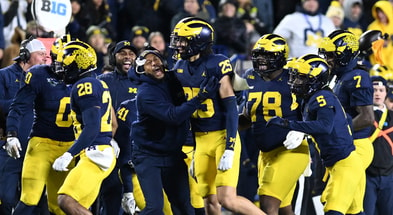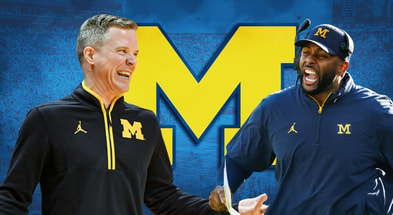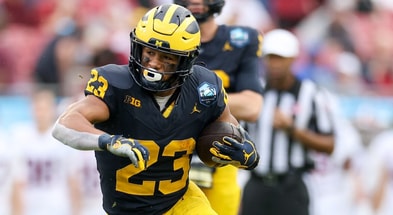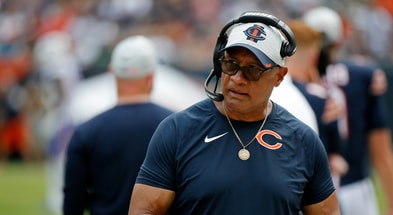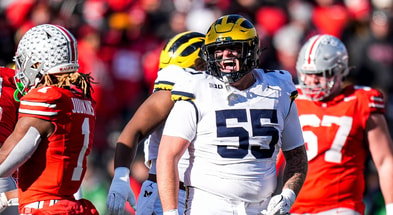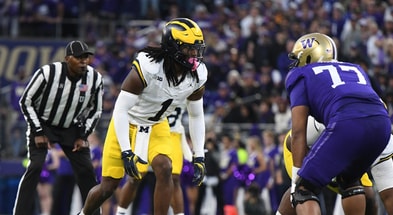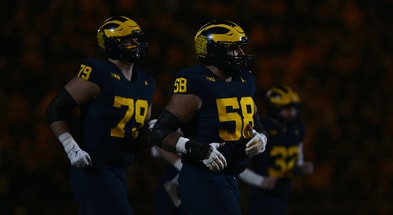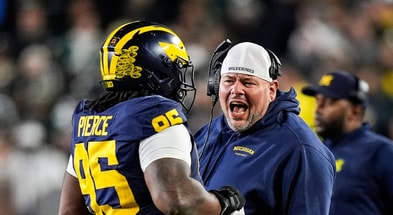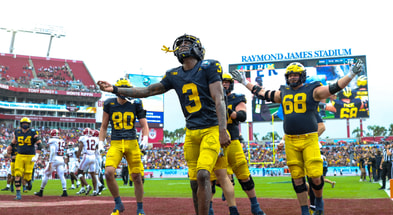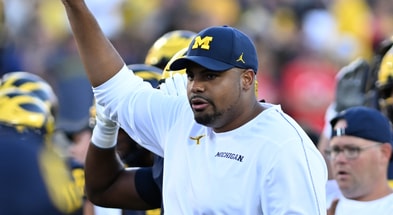Michigan and NIL, part II: 'Fear ... it’s all about the money’

Michigan is still finding its way in the new college football landscape, but its new Champions Circle collective has a plan to navigate it. Former U-M linebacker Jared Wangler is among those at the front of it — he and Board of Regents Chair Jordan Acker recently discussed how they’re doing things, and the hope that it will be the standard in the years to come.
RELATED: Michigan & NIL, Part I – What U-M is doing compared to other schools
RELATED: INSIDE THE FORT, Part I – Michigan hoops offers, NIL & football
Wangler took it upon himself to take the lead, with the Regents’ and others’ support. Acker said he “never will tell Jared what to do — go give this money,” but he will advise on what’s important.
“What we have done is given Jared advice on what lanes are important for the University in terms of our ethics … how people represent the University and who represents the University,” he said. “I think that’s the most important thing you can do from a university perspective. That block ‘M’ is over 200 years old. It comes before us; it will come after us. Making sure we are really careful about it is really important on both sides … first on preserving legacy and importance of the brand, but let’s be frank — [also] winning. In the classroom, on the court or field. And we’ve seen that this year.
“Our fans expect both, and they should expect both. That’s the kind of student-athlete that has been drawn to Michigan and will be drawn to Michigan in the future now in this new era of NIL.”
Agents calling Michigan on behalf of high school recruits
Not surprisingly, though, a lot of the prospects Michigan is pursuing are now leaning on others to help them navigate their recruitments. There have already been insane amounts of money being thrown around. And while Name, Image & Likeness (NIL) was never supposed to be “pay for play,” that’s exactly what it’s become.
Different schools are taking different approaches, Wangler noted. Ohio State’s Ryan Day, for example, reportedly challenged his boosters for $13 million just to keep his team together.
“I myself am getting calls from NIL agents out there representing high school recruits. That’s the new flavor of this whole thing,” Wangler said. “It’s this whole new breed of “expert,” even if you’ve been doing NIL for less than a year and you consider yourself an expert. That’s a whole ‘nother topic of conversation.
“But they’re steering these kids and trying to act like an NFL agent and going and trying to solicit deals from collectives. And that’s happening all over the country right now. That’s a real issue in my eyes., because you’re now devaluing what it means to go to that school and to get an education and be a part of a team. To go and earn when you get there.”
Kids in the past have gone through stages, he noted. They feel wanted in the recruiting process, get pummeled their first couple years. Thy get their egos taken down a notch and build themselves back up.
“You earn everything you get at that school,” he said. “My fear now is that a lot of these NIL agents are filing up these players’ minds, high school recruits’ minds, 16-, 17-year-old kids saying, ‘it’s all about the money. You should be getting all that money now, and you don’t even have to have played a down at that school to have that money in your pocket.’
Top 10
- 1Live
Florida vs. Houston
Championship Game live updates
- 2New
Jay Bilas
Calls out ACC in defense of Duke
- 3
Mouhamed Dioubate
Alabama transfer commits to Kentucky
- 4
Zach Arnett
Resigns as UNLV DC
- 5Trending
Chad Baker-Mazara
Teases return to Auburn in '25-26
Get the On3 Top 10 to your inbox every morning
By clicking "Subscribe to Newsletter", I agree to On3's Privacy Notice, Terms, and use of my personal information described therein.
“That’s not a transformative experience. That is strictly making a decision based off money. For better or worse, we don’t agree with that. We don’t think that’s ethical.”
A system to ‘incentivize personal development’
The Michigan approach, then, is to incentivize personal development, Wangler said, on and off the field. They aren’t going to be offering $8 million up front, but the student-athletes will get a chance to earn plenty of money.
As it stands now, several Michigan athletes are already raking in large amounts of money.
“We [want to] reward those who come to Michigan and want to win for Michigan and come on the field and do what they’re supposed to do,” he said. “That’s our approach to it.”
It simply won’t be about pay for play at Michigan, he added.
“Every school is trying to figure out what the best-in-class practice is. I don’t agree or think it’s sustainable to be dropping a bag off for a 17-year-old kid,” Wangler said. “This isn’t the NFL. This is college sports. There isn’t best-in-class practice yet. We’re less than a year into this. I don’t think there’s any NIL expert out there.
“This is July 21, 2021 that it came into play. We’re still trying to figure out with best practice is and learning as we go. But it’s with the student-athlete in mind and the University in mind and how we can marry the two and make this thing sustainable and really level the playing field for Michigan.”
Because it hasn’t been for a long time, he added.
“I don’t think anybody here is delusional. [Michigan] has been fighting with one arm behind our back in a lot of cases in recruiting,” he said.
“You always hear about stories with recruits deciding on a school where there might have been some sort of hidden agreement in there where they’re being compensated. That’s pretty widely known at this point. So, in this case, it levels the playing field [for] Michigan.”
That’s the hope, anyway.
Coming up … Part III — “genuine risks to college football.”

